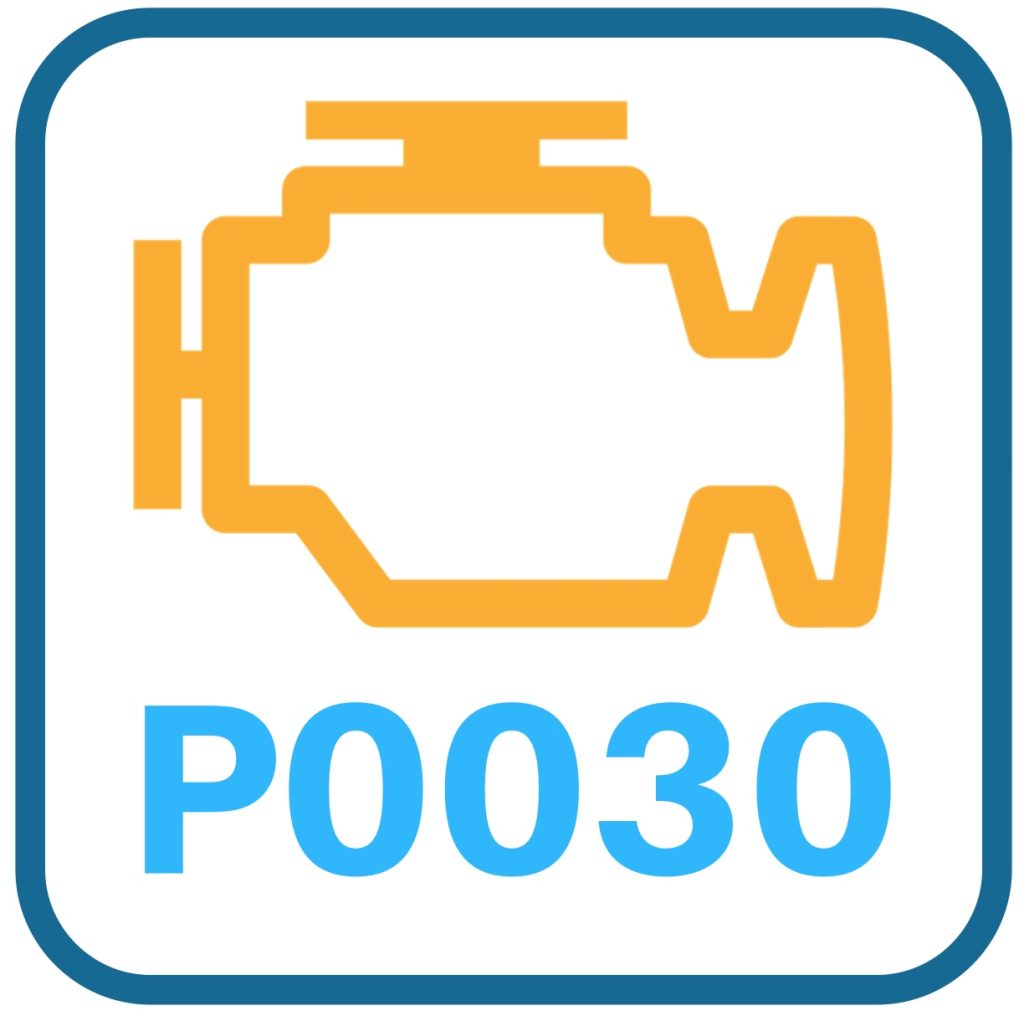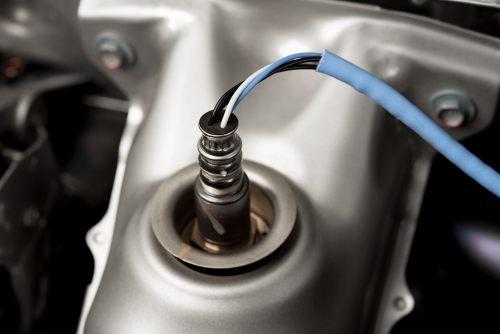
P0030 is a very common OBD2 trouble code. It’s generic, which means it has the same definition for the Buick Rainier as any other vehicle.
This code is almost always caused by a bad heated oxygen sensor or wiring issue.
P0030 Definition: Heater Control – Circuit – B1S1

P0030 indicates no signal coming from your Buick Rainier’s Bank1 Sensor 1 oxygen sensors heater circuit. The heated element within the oxygen sensor heats the sensor faster than the exhaust can. The heated element reduces emissions by letting the fuel trim enter closed loop operation more quickly.
The A/F sensor is responsible for measuring the oxygen content of the exhaust. The PCM uses this data to adjust the air-fuel mixture to the optimal 14.7 parts air to 1 part fuel.
Circuit
In the case of P0030, the PCM has detected a fault in the circuit that activates the oxygen sensors heater.

Bank One
Bank one is the part of your Rainier’s engine with the first cylinder. You only need to concern yourself with “banks” if there is more than one cylinder head (4 cylinders and inline-six engine owners can skip this part).
Bank one is usually the cylinder head facing a little more forward than the other (toward the engine accessories).
Sensor 1
Sensor one is easier to identify. Start from bank one and follow the exhaust. It’s the first one. It’ll likely be on the exhaust manifold or collector.
Buick Rainier P0030 Symptoms
The heated element in the oxygen sensor enables closed-loop operation faster, decreasing engine emissions. You probably won’t notice any drivability issues with the vehicle itself.
- Slight decrease in mileage
- Check engine light
- More noticable exhaust smell when driving at first (like gas)
Buick Rainier: P0030 Causes + Diagnosis

Here are the most common causes of P0030 in the Buick Rainier, presented to you in a somewhat proper order of diagnosis:
1. Check the Wiring on Bank 1 Sensor 1
Since the PCM is not getting a response from the heated oxygen sensor circuit, check the wiring harness for damage.
Pay extra close attention to where the harness may have come into contact with something. Look for burnt or damaged wiring. Wiring issues are a VERY COMMON cause for P0030.
The hot exhaust makes wiring harnesses brittle, and road debris can damage them.
Take a look at where your Rainier’s oxygen sensor plugs into the wiring harness and see if there has been any damage to the pins or if the wiring harness is breaking at the pigtail.
If the pins appear corroded, get some electrical contact cleaner and clean them up. If they are damaged, you will need to repin or replace your wiring harness.
2. Check the Fuses and Voltage
Check the heated oxygen sensor fuse to ensure that it has not blown for some reason. Then, verify with the key on that there’s no voltage at the oxygen sensor. If there is no voltage, you’ll need to find where the short/open is.
If there is voltage at the heater circuit, you’ll need to test the ground for resistance. If you find infinite resistance, you’ll need to repair the ground circuit.
3. Optional – Swap Test
If your Buick Rainier happens to be a V6 or V8 model, you can do the “swap test.” This involves clearing the codes and seeing if the code “jumps” to bank 2. It’s a great test because it’s foolproof and easy.
Here’s how the swap test is done:
- Clear the DTC codes with your scanner.
- Swap the Bank 2 Sensor 1 O2 sensor with the Bank 1 Sensor 1. It’ll be on or right after the exhaust manifold.
- Run the your Rainier’s engine until the check engine light comes back on.
- If the code changes to P0050 (The Bank 2 version of this code), that’s proof enough you need to replace the oxygen sensor you swapped.
- If the code remains P0030, you’ll need to continue pursuing your diagnosis, knowing that both O2 sensors are working fine.
4. Bad Oxygen Sensor
If the oxygen sensor wiring checked out or failed the swap test, it’s time to replace the heated oxygen sensor. Oxygen sensors go bad all the time.
Conclusion
P0030 is almost always caused by a bad wiring harness or oxygen sensor. Good luck repairing your Buick Rainier!
